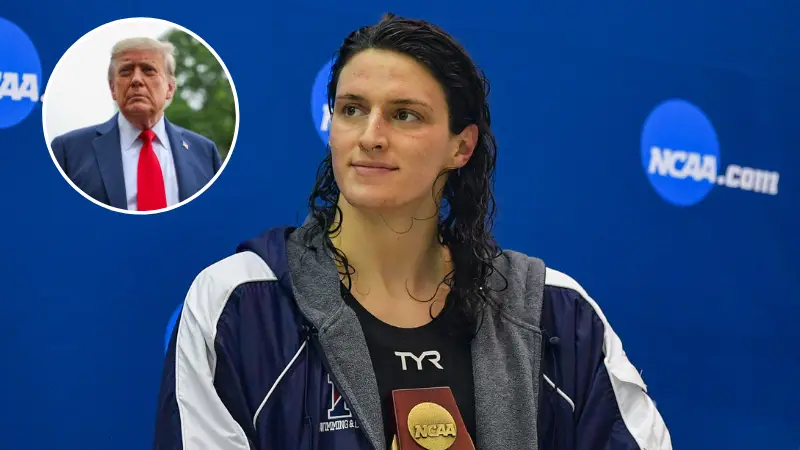
Lia Thomas will have her swimming times removed from the records and her medals stripped after a landmark decision from Donald Trump.
In 2022, Thomas became the first openly transgender athlete to win an NCAA national championship - the highest college title - in swimming.
Her victory has been the source of controversy over the past three years, with incoming President Trump taking a hardline stance upon taking office earlier this year.
In one of his first acts as President, Trump signed an executive order that aimed to prevent transgender women from competing in female categories in sports.
Advert
The order, which was to largely cover high schools, universities and grassroots sports, was accompanied by a warning from the President, who stated that organisations could lose federal funding if they did not comply.
In July, the University of Pennsylvania - where Thomas won her NCAA gold medal - agreed to block transgender athletes from competing in women's sports.
They declared that they would update their record books for the 2021/22 season to reflect current guidelines.
A legal battle has ensued in recent months, with the US Office for Civil Rights (OCR) finding that the university violated Title IX, a landmark law passed in 1972 that prohibits discrimination based on sex.
The US Department of Education announced on Tuesday that the university had 'entered into a resolution agreement to resolve its Title IX violations', as per PinkNews.
It will also 'send a personalised letter of apology to each impacted female swimmer'.
Thomas' records will be expunged, it is added, except for her time in the 4x100m relay race.
The administration has now dropped a civil rights case, in which it claimed that the university had 'discriminated against cis[gender] women by allowing Thomas to compete following her transition'.
In a statement, UPenn noted that their own policies during the 2021/22 season were 'in accordance with NCAA eligibility rules at the time', adding: "We acknowledge that some student-athletes were disadvantaged by these rules. We recognise this and will apologise to those who experienced a competitive disadvantage or experienced anxiety because of the policies in effect at the time."
Topics: Lia Thomas, Donald Trump, Swimming, United States